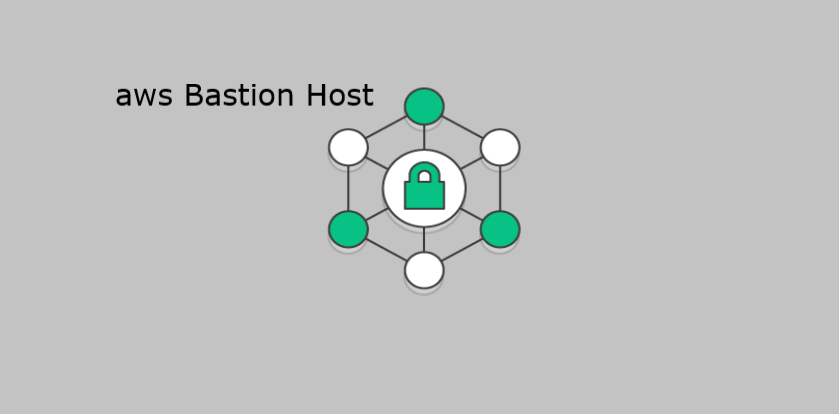Fortifying Your Network: The Role and Importance of Bastion Hosts in Cybersecurity
 Arnold Bernard
Arnold Bernard
What are Bastion Hosts ?
A bastion host, in the context of computer security and networking, refers to a specially hardened server that is intentionally exposed to the public internet or an untrusted network. Its primary purpose is to provide secure access to a private network from an external network, typically the internet.
Key characteristics and uses of a bastion host
Security Gateway: A bastion host acts as a controlled gateway between an internal network (often a private network or subnet) and an external network (such as the internet). It is designed to withstand and mitigate various types of attacks and unauthorized access attempts.
Access Point: It serves as a single point of entry into the internal network for authorized users or systems from external networks. This centralized access helps in enforcing security policies and monitoring incoming traffic.
Hardened Configuration: Bastion hosts are configured with strict security measures, including limited services, minimal software installations, and robust access controls. These measures reduce the attack surface and potential vulnerabilities.
Authentication and Authorization: Access to the bastion host itself is tightly controlled, often requiring strong authentication methods such as SSH keys, multi-factor authentication (MFA), or other secure authentication mechanisms. Once authenticated, users can then access resources within the internal network through the bastion host.
Audit and Logging: Bastion hosts are typically equipped with extensive logging capabilities to monitor access attempts and activities. This logging helps in detecting and responding to potential security incidents or unauthorized access attempts.
Common uses of bastion hosts include
Secure Remote Access: Providing remote access to internal resources (like servers, databases, or applications) for administrators or authorized users working from external locations.
Secure Communication Channel: Acting as a secure relay point for communication between different parts of a distributed network or between networks with varying levels of trust.
Jump Host: In some configurations, a bastion host can also be referred to as a "jump host" where it facilitates secure access to multiple internal servers or resources.
Steps to Set-up Bastion Host
Launch an EC2 Instance for Bastion Host:
Log in to the AWS Management Console.
Navigate to the EC2 service.
Click on "Launch Instance" and select an appropriate Amazon Machine Image (AMI), such as Amazon Linux, Ubuntu Server, or another preferred Linux distribution.
Choose an instance type suitable for your needs (e.g., t2.micro for low usage, t3.medium for higher performance).
Configure the instance details, including network settings (VPC, subnet), security groups, and IAM role (if applicable).
Review and launch the instance.
Configure Security Groups:
During instance launch or after launch, configure the security group associated with the bastion host.
Allow inbound traffic on SSH (port 22) from your trusted IP addresses or ranges only. For example, you might allow SSH access from your corporate network or specific IP addresses used for administration.
Restrict outbound traffic to necessary protocols and ports.
Access and Connect to the Bastion Host:
Once the instance is running, note down its public IP address or DNS name.
Use SSH to connect to the bastion host from your local machine or a trusted network. For example:
ssh -i /path/to/your-key.pem ec2-user@bastion-public-ipEnsure that SSH access is secured with key pairs and potentially further secured with multi-factor authentication (MFA).
Harden the Bastion Host:
Update the bastion host with the latest security patches and updates.
Disable password-based authentication and enforce key-based authentication.
Configure SSH daemon settings (
/etc/ssh/sshd_config) to enhance security, such as disabling root login and limiting SSH access to specific users.
Configure IAM Roles (Optional):
- If your use case requires accessing other AWS services or resources from the bastion host, consider attaching an IAM role to the instance with appropriate permissions. This avoids the need to store AWS credentials on the bastion host.
Logging and Monitoring:
Enable CloudWatch Logs or other logging solutions to monitor SSH access and activities on the bastion host.
Set up CloudWatch alarms or other monitoring alerts to detect unusual or unauthorized access patterns.
Backup and Recovery:
- Implement backup and snapshot policies for the bastion host instance and its configuration to facilitate quick recovery in case of instance failure or compromise.
Testing and Validation:
Conduct thorough testing of the bastion host setup to ensure it functions correctly and securely provides access to your EC2 instances and other resources within your VPC.
Consider conducting penetration testing or security assessments periodically to identify and address potential vulnerabilities.
By following these steps, you can effectively set up a bastion host on AWS to securely manage and access your EC2 instances and other resources within your AWS environment. Always adhere to AWS security best practices and regularly review and update your security configurations to maintain a high level of security posture.
Subscribe to my newsletter
Read articles from Arnold Bernard directly inside your inbox. Subscribe to the newsletter, and don't miss out.
Written by
